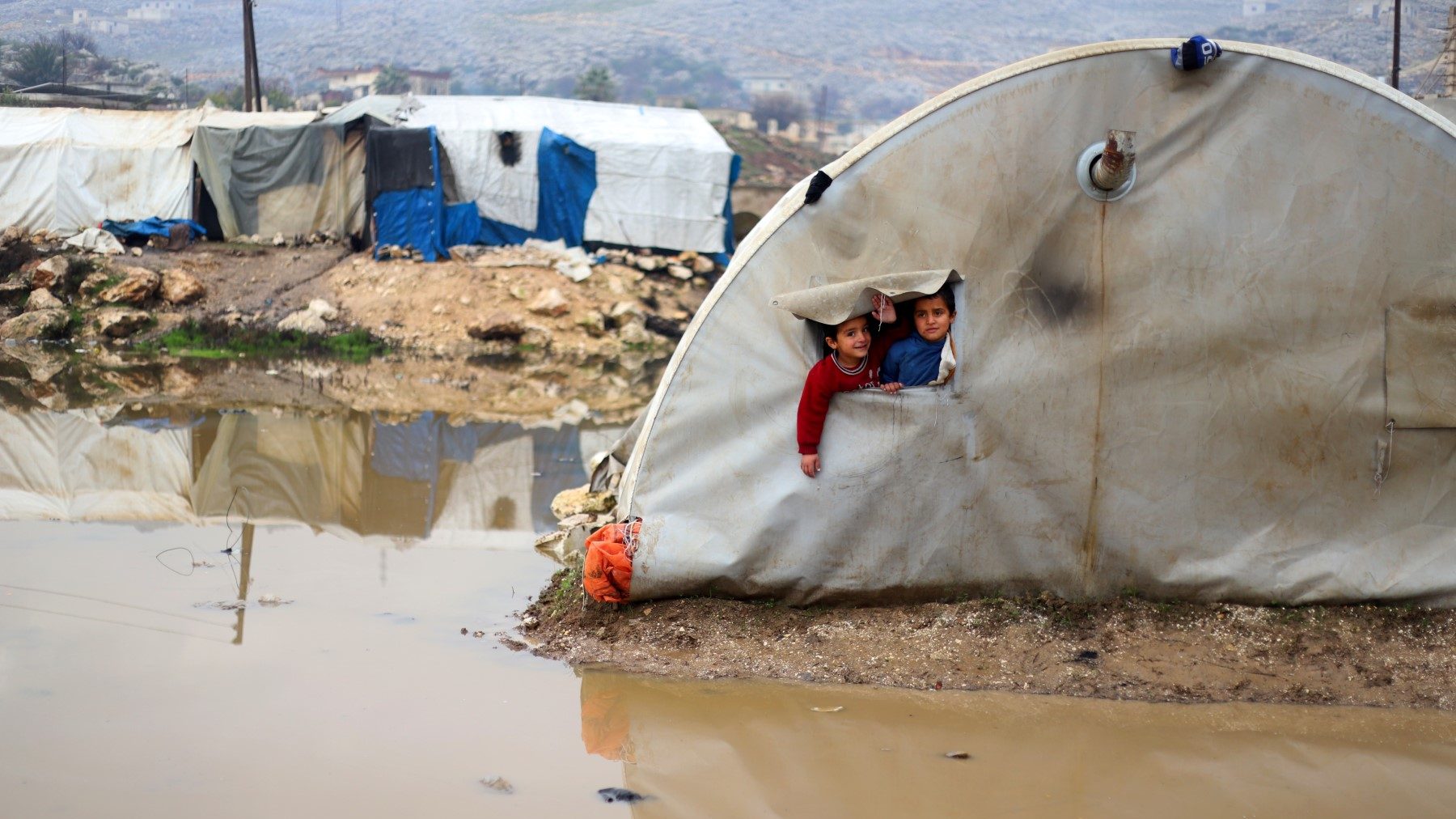On Monday, a clinic opened its doors to civilians in the al-Rukban camp for one day only, the first time the internally displaced person (IDP) camp on the Syrian-Jordanian border has had access to healthcare since the start of the COVID-19 pandemic, almost two years ago.
Abd al-Rizq, a spokesman from the local Syrian-opposition group Maghawir al-Thawra (MaT), told The New Arab that the clinic had accepted and treated 50 patients on Monday, It will be open for only one day to “examine patients with chronic conditions”, the spokesman said, adding that he hoped it could re-open to civilians soon.
Al-Rukban is a makeshift camp of about 12,000 displaced Syrians stranded on the Jordanian border. The camp has no doctors and used to be serviced by a UNICEF clinic across the border in Jordan, but this was closed by the Jordanian government in March 2020 amid the COVID-19 pandemic outbreak.
The clinic is run by MaT and the U.S.-led Coalition to Defeat Daesh/ISIS, who control the roughly 55-kilometer demilitarized zone where the camp is situated. The health center, which is located on the al-Tanf U.S. military base, does not generally accept civilian patients except in rare circumstances.
The clinic is able to provide almost “all specialized healthcare” in cooperation with the Coalition, the leader of MaT, Brigadier General Mouhanad al-Talla, said on Twitter.
Hussam, a resident of al-Rukban camp speaking under a pseudonym, told The New Arab that the opening of a clinic was “an amazing achievement.”
“We used to be afraid of getting ill because there was no treatment here. Sometimes cases had to be sent to [government-held territory] and some of them died in regime hospitals,” Hussam said.
Without doctors or a proper medical facility, camp residents had to rely on dangerous ad-hoc solutions, or in desperate cases, travel back to regime territory where they risked arrest.
Read Also: Aid Cuts Threaten Hospitals in Idleb
In one particularly dramatic case in November 2020, a team of nurses had to perform an 11th-hour Caesarean section with doctors from abroad advising via video call.
According to Hussam, the clinic was opened because of mounting public pressure from residents. They have held a two-month sit-in starting from December, requesting the international community and the Coalition provide the camp with humanitarian aid.
Demonstrators hoisted placards with slogans demanding that the Coalition provide the camp with medicine, education, and food aid as “the controlling power in the area”.
Syrian pro-regime forces generally prevent the entry of aid and goods into the demilitarized zone, while Jordan refuses to allow any aid to come into the camp from its territory.
The Coalition does not provide aid to the camp either, saying that it is the responsibility of the Syrian government to provide its citizens with aid. Critics have contended that the Coalition has a responsibility to provide aid to the camp as its controlling power, an assertion U.S. officials have rejected in the past.
The camp has not received any aid since September 2019 and many of its residents suffer from malnutrition, especially the children. Despite this, most residents, including Hussam, refuse to return to regime-held territory for fear of persecution or even torture at the hands of security forces.
The Syrian Observer has not verified the content of this story. Responsibility for the information and views set out in this article lies entirely with the author.


